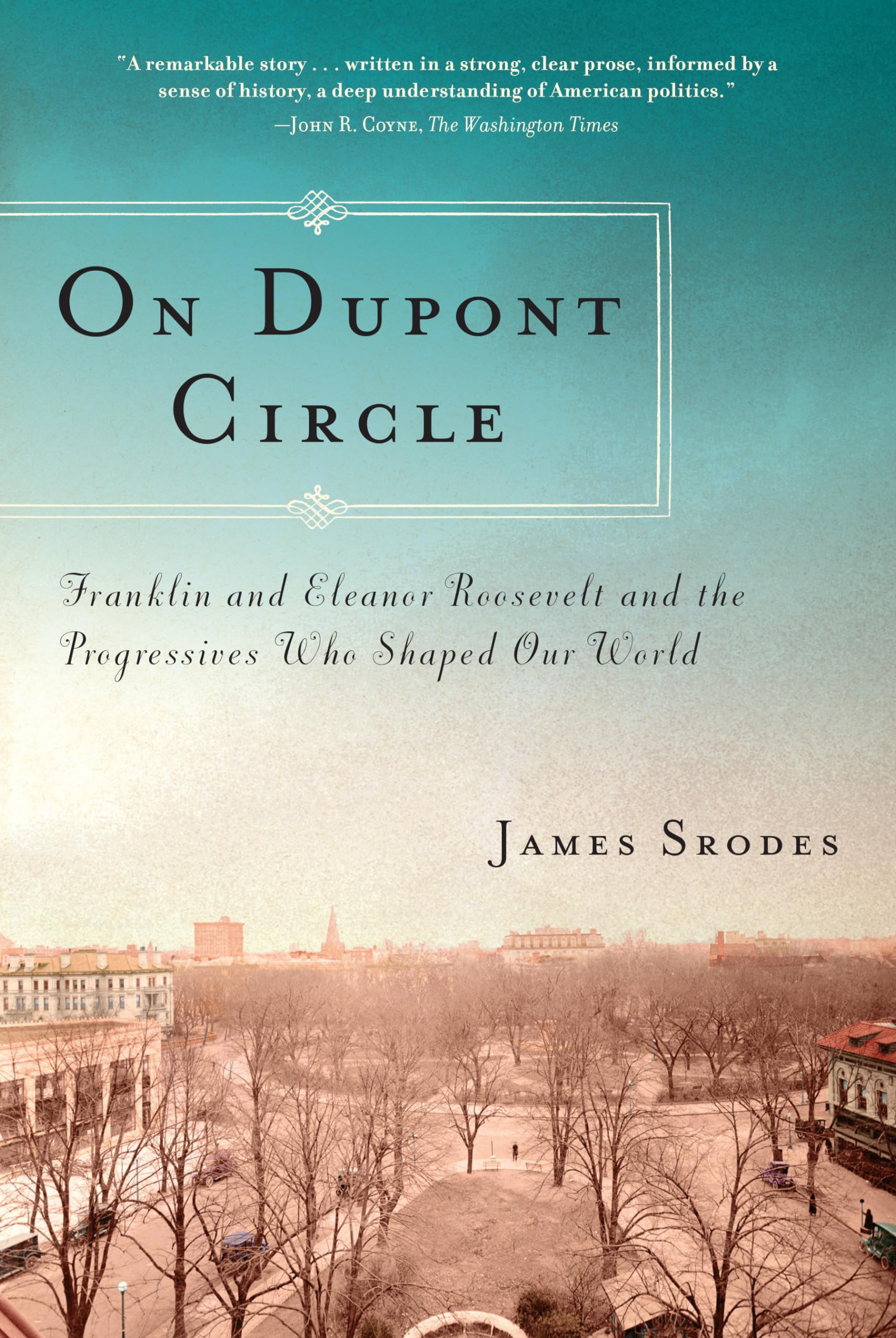

On Dupont Circle: Franklin and Eleanor Roosevelt and the Progressives Who Shaped Our World
D**E
On Dupont Circle
James Srodes, life-long journalist and historical writer (See his works on Franklin and Dulles.), brings us another well-written, analytical offering; this time he investigates a small group of forward thinkers who, beginning in the second decade of the 20th century, resided around and drifted through the area of Washington, DC's Dupont Circle. Srodes makes a convincing argument that this set, educated during and influenced by the Progressive Era, when the nation was filled with Teddy Roosevelt's intervention in big business and Wilsonian ideals, had a collective and inordinate influence of the course of US history and hence the world. He suggests the line from progressive thinking is easily traced through such prominent men as Walter Lippmann into modern liberalism and is detectable even today in the political posturing and rhetoric of candidates for high office.The book outlines the actions and to a degree the interactions of the Dupont group, which included such luminaries as Eleanor and Franklin Roosevelt, Lippmann, Hoover, Frankfurter, John, Allen, and Eleanor Dulles, Sumner Wells, and Hamilton Fish Armstrong. These men and women helped guide the nation through the great depression, the war which followed, and set the stage for internationalism of the post WWII era. They helped shape US attitude and action for at least the rest of the twentieth century, establishing values and promoting ideals for common good both at home and abroad.The book is chronologically arranged, covers the period from the teens into the forties, and is remarkably well written, though one should expect this from a seasoned journalist. Also impressive is Srodes' ability to condense: He covers the range of personalities and activities in just under 300 pages. The book's conclusions are colored with a hint of nostalgia, a look back at giants and visionaries, men and women who altered our nation by advancing how it could and should be. But Srodes also urges renewal: "Do we have the same faith in ourselves today to go on building on the legacy...?"On Dupont Circle is a must read for any student or scholar of 20th century US history, but Srodes' ability as a writer makes his work agreeable for casual readers as well. It belongs in every college and university library, on the shelves of aficionados, and under the eyes of less formal readers. Bravo, Mr. Srodes.
D**E
James Srodes's ON DUPONT CIRCLE
Who would have guessed that such disparate individuals as Franklin and Eleanor Roosevelt, Herbert Hoover, Walter Lippman, Felix Frankfurter, and the Dulles brothers, John Foster and Allen--to name about half of the dramatis personae of this fascinating study--could have functioned together to help shape the world we call our own? Author Srodes brings these smart, visionary young progressives to vivid life as he describes their milieu in and around Dupont Circle beginning just before the advent of WW1 and lasting into the Second War. The book encourages us to reconsider some of our preconceptions regarding certain historical events and figures, notably those that promote FDR as the archetype of modern American presidents and Herbert Hoover as the opposite. And it'll also force many (maybe even a few Republicans!)to howl in laughter (as I did)when they recognize some of the shocking similarities between the Progressive Era and our own: in a speech he delivered in 1920, FDR characterized the Republican Party as having been overtaken by "the forces of conservatism and reaction ... while the Democratic Party had evolved into the movement for those motivated by liberal and progressive impulses." He went on to charge Congress with being preoccupied with cutting taxes 'for those unfortunate individuals with incomes of one million dollars or more.' Plus ca change, as they used to say. I love the book's pace, its reader-friendly style, and its novelistic arc. And I was delighted to discover some fascinating tidbits, such as that Herbert Hoover and his wife often communicated in Mandarin, Woodrow Wilson had been a college football coach, and Speaker of the House William Brockman Bankhead had a daughter by the name of Tallulah. ON DUPONT CIRCLE is well researched, gracefully presented, and--in all--a jolly good read.
J**N
dulce et utile
Dupont Circle review Arguments between differing views of the American ideal and its mission, expansive vs. rock-ribbed, conservative vs. liberal--which road to take?-- have been with us from the beginning says author James Srodes. It is the subject of this year's election of course, but Srodes enlightens us to that realization through a wonderful book about people of a previous age, the 1920s and 30s, dawn of the Progressive era, triumph and defeat of previous conceptions. Srodes is above all a good reporter, which is to say he digs deep to come up with good stories about people, their thoughts and ambitions. Those ambitions for a wide array of people who were tied by age and class and schooling--and temporary residence near Dupont Circle in Washington D.C.--produced the modern history of America and even the world if the United Nations is taken into account. Srodes weaves their stories into the American tapestry. There are surprises in this book. The universal admiration for Herbert Hoover, his talents and his accomplishments, an admiration you don't much hear about today because his reputation was forever dimmed by the Great Depression. Franklin D. Roosevelt, who was not thought to be complex nor deep in those times, but whose reputation and service to the American story beguiles us still--particularly in this year's election. That is what you get with a good reporter: facts, people, insights, good stories that entertain as they educate, the classic combination of dulce et utile. A wonderful book.
Trustpilot
1 month ago
2 months ago